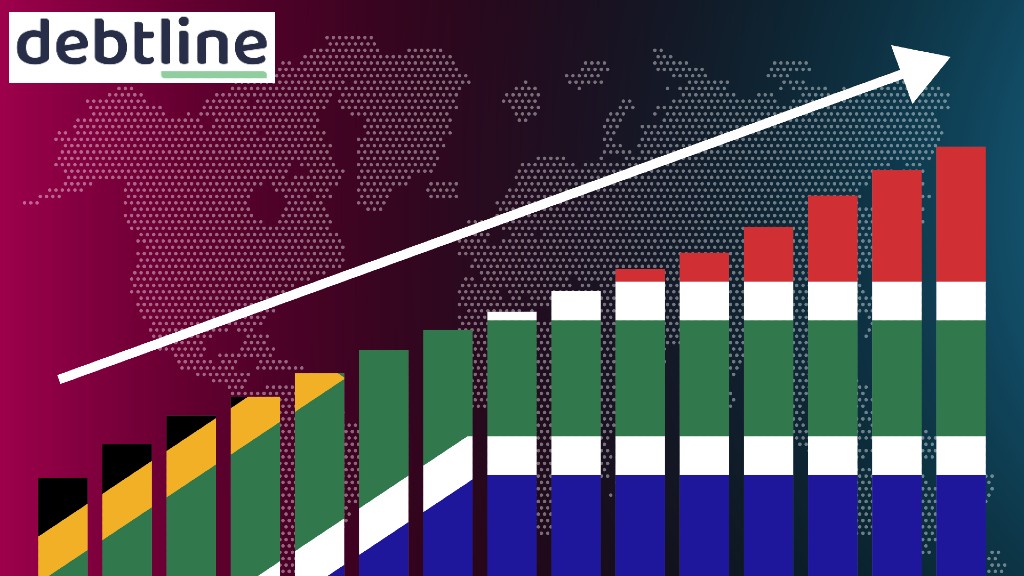Stronger Rand: Better Living For South Africans

As the Rand has weakened, the past couple of years have been a wild time riding the rise of inflation and repo rates. The constant increase in expenses has been hard on South Africans, particularly for those in debt.
The Rand is slowly but surely strengthening in value, which comes as a relief for the economy, but what does this mean for those with private debt?
High Costs, More Debt
It’s a well-known fact that as debt of the private sector grows, the risks of a financial crisis increase. Higher private debts increase the probability of a recession and slower recoveries.
The Rand has dipped rather low in value over the past few years, which has led to 10 units of increases in inflation as the SARB tries to get it back on target. South Africans have felt this heavily, with the costs of everything going up simultaneously, more than once.
Read: More South African Households are Turning to Credit Cards
For those who rely on debt to purchase the necessary goods for survival, it’s been a top concern. The ZAR is currently slowly recovering, and a stronger Rand can lead to some relief.
The Advantages of a Strengthening Rand
The cost of imported goods will fall, bringing relief to consumers. Meaning you’ll have more disposable income instead of struggling to make ends meet.
A strong Rand is a two-edged sword. It will benefit South African consumers and businesses that rely on imported goods. On the other hand, it will hurt others, such as tourists visiting.
For most, travelling anywhere outside of South Africa has been almost impossible. The increase in Rand value can bring some relief. This allows for lower travel expenses, accommodation, and buying more goods, thanks to conversions not being as high.
For South Africans who are paid by overseas companies, a stronger Rand does mean less income. However, if the overall cost of living decreases, this shouldn’t be an issue.
Read: South Africans are Cutting Costs to Make Ends Meet
The fact is that debt has been building up for South African residents as they struggle with inflation. With higher rates on electricity, water, refuse, home loans, and other debts, it’s been a couple of steps backward rather than forward.
This has left many South Africans financially vulnerable, leading to even more debt and bankruptcy for poorer communities.
Rand on the Rise Means Room to Breathe
The South African Rand strengthening will lead to relaxation on the increase of inflation and repo rates. This means South Africans can slowly but surely start stabilising and recovering instead of going even more into debt.
It’s also possible to see some relief on the cost of food and other basic necessities, which could help decrease overall spending on essentials.
Read: 7 Steps to Financial Wellness
For the economy, it is important that personal debt gets less excessive as debt puts limits on the capacity of the financial system. On top of that, it leaves the economy more vulnerable to unexpected increase shocks.
With high government debts, we can experience an increase in output volatility, but with the rise in private debt, there is more volatility in consumption and investments.
A buildup of household debt can also make any debt-related recessions worse. A stronger Rand allows for the country to move away from such possibilities as South Africans have the opportunity to get back on their feet.
Debtline Can Assist
If you’ve found yourself in trying times as the economy has struggled, we can help.
Debtline is an innovative debt management company that assists those in need. We can help you negotiate debt repayments, access expert advice from our NCR-registered team of debt counsellors, and provide protection while you’re undergoing debt review.
If you need any assistance to get back to living debt-free, contact our team today, and we’ll call you back.